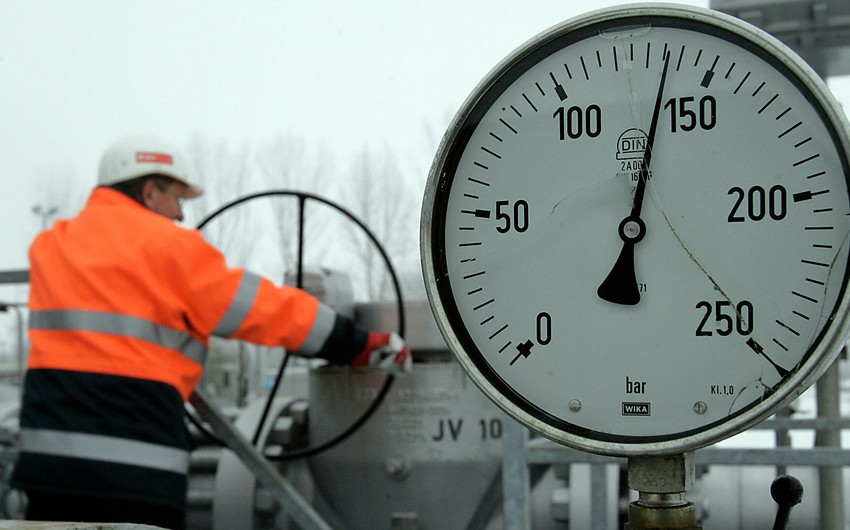In conformity with the Russian presidential decree, dated March 31, from April 1, the payment for the Russian pipeline gas, supplied to "unfriendly" countries, must be made exclusively in Russian rubles. Gas supplies will stop if these countries refuse to pay under the new rules.
Earlier, the European Commission announced that it would not allow payments in ruble for Russian gas. The G7 countries have said they will not do so. In all countries, payment is made in US dollars or euros, and it is not possible to unilaterally change to another currency. Thus, the settlement currency is an important condition of the gas contract. In this situation, Gazprom or its counterparties can apply to the Stockholm Arbitration Court. Such proceedings take years. During this period, Europe will buy gas, and payments will be made in the currency specified in the contract. In fact, the new payment mechanism will not work.
But it is possible that Russia will take radical steps. The Kremlin spokesman said there would be no gas without payment. Europe has begun to mobilize all possibilities in the face of the threat of cutting off Russian gas supplies. Germany, which is the most dependent on Russian gas in Europe, has launched a contingency plan to ensure energy security. So, in the event of a cessation of natural gas supplies to Europe, steel mills, enterprises producing fertilizers, chemicals, bricks will be under threat of stopping. Natural gas will be replaced by fuel oil and coal.
In contrast to previously announced plans, nuclear energy will be used more actively. The infrastructure of alternative energy sources (wind and solar) will expand at a faster pace. Liquefied natural gas (LNG) supplies will be significantly increased. Thus, it is planned to purchase an additional 15 billion cubic meters of LNG from the United States. This is equivalent to 10% of the natural gas supplied annually from Russia to the EU. It is expected that from next year, the volume of additional LNG supplies will increase by another 35 billion cubic meters and reach 50 billion cubic meters per year.
It should be borne in mind that at present the heating season in Europe is coming to an end. In the next 6 months, the demand for natural gas will drop sharply. At least until August, Europe can do without Russian gas. Because today, in the face of the Russian threat in Europe, economic factors have faded into the background, giving way to moral and ethical ones. While Russia claims it has never used energy as a tool of blackmail, its actions suggest otherwise. That is why Europe is so determined to get rid of this dependence once and for all.
Today, 40% of the EU's needs for "blue fuel" are covered by Russia. That is, the European economy can withstand the absence of Russian gas for several months, which cannot be said about the Russian economy. Russia exports about 10 billion cubic meters of natural gas to Europe every month. We are talking about 140 billion cubic meters per year. If gas supplies to Europe stop, then it will be impossible to redirect this volume to other markets. Neither China nor the CIS space can replace Europe in terms of commercial efficiency. No matter how much Russia hopes for China, it is very difficult to even technically ensure such large-scale deliveries.
The Power of Siberia gas pipeline, which supplies natural gas to consumers in the Far East and China, pumped 10.4 billion cubic meters of gas last year. Power of Siberia-2 will be built no earlier than 2028. Most importantly, China prefers to buy more LNG and develop its own shale gas production. Today, China cannot replace Europe in terms of oil supplies. 80 million tons of oil are exported from Russia to China annually. All transport routes are limited to this volume, and it is not possible to send more through these channels.
The fact is that Russia risks losing the European natural gas market, as well as facing an oil embargo. The US has already imposed a ban on oil imports from Russia. Britain will stop deliveries of oil and oil products from Russia by the end of 2022. British BP, British-Dutch Shell, French TotalEnergies, Australian Viva Energy, and Ampol said they would not buy crude oil from Russia. According to Russian Deputy Prime Minister Alexander Novak, the price of a barrel of "black gold" may exceed $300 if an embargo is imposed on Russian oil.
OPEC's decision not to sell oil to Western countries in 1973-74 led to the fact that in a short period of time “black gold” more than doubled in price, and by the time the embargo ended, it quadrupled. This happened as a result of the fact that the organization at that time accounted for half of the oil supplied to the world market.
Considering that Russian oil accounts for only 1/10 of the world's oil supplies, the assertion that the price of "black gold" may exceed 300 or even $200 does not seem convincing. The EU cannot reach a consensus on this issue because of the position of countries that depend on Russian gas and, in a sense, do not want to irritate Russia. But after the cessation of gas supplies, Europe will inevitably join the oil embargo.
It should be borne in mind that in Russia 36% of budget revenues are provided precisely at the expense of the oil and gas sector. Deprivation of oil and gas revenues against the backdrop of freezing almost half of the Bank of Russia's gold and foreign exchange reserves, isolation of the country's financial sector, increased inflation rates, and nullification of the country's investment attractiveness will lead to catastrophic consequences for the country. The oil and gas embargo will be a kind of declaration of economic war against Russia, and for Ukraine - the opening of a “second front”.


 https://static.report.az/photo/eac11a8a-2a39-3a41-9cb1-70cff72f809d.jpg
https://static.report.az/photo/eac11a8a-2a39-3a41-9cb1-70cff72f809d.jpg

